Africa internet: Where and how are governments blocking it?
- Published
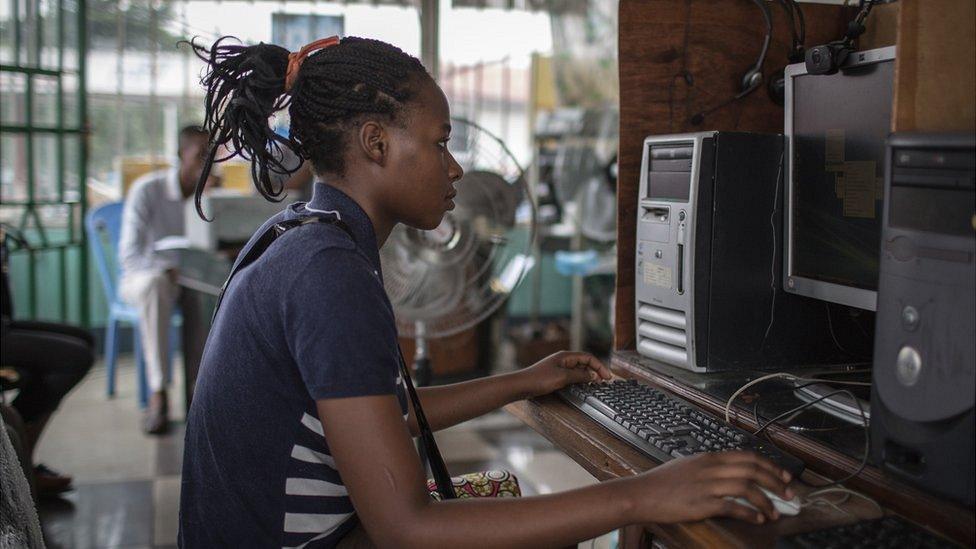
Cases of countries restricting internet access have been rising
No Facebook, Twitter or WhatsApp.
This is becoming more common in some African countries, where governments have sometimes shut down or restricted the internet and access to social media platforms.
Uganda is the latest country to do so in the run-up to its presidential election on 14 January.
Digital rights activists say it's censorship, but governments argue it helps maintain security.
How does blocking work?
A government can restrict access by ordering internet service providers (ISPs) to limit access to their subscribers.
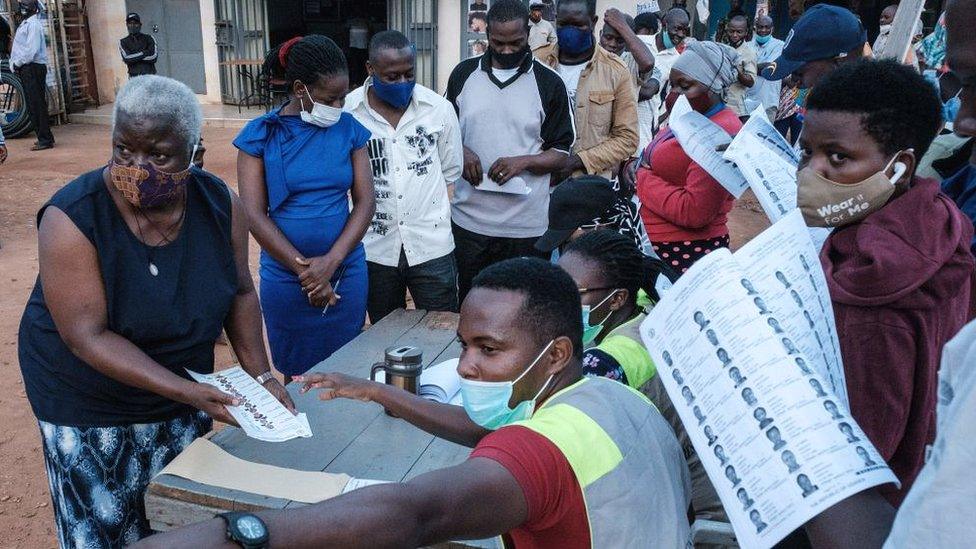
Uganda's presidential elections saw internet access restricted
In the first instance, this is likely to be a block on commonly-used social media sites.
As a more extreme measure, the authorities can order service providers to block all internet access.
In Uganda, for example, online users first reported facing difficulties accessing some apps and some sites.
The government then issued an order to service providers to block social media platforms, then told them to block all internet connectivity on the eve of election day on 14 January.
Internet monitoring organisation Netblocks reported that connectivity had dropped dramatically in Uganda as a result., external
How many countries have blocked access?
Cases of internet shutdowns in Africa have been rising.
Tanzania restricted access to the internet and social media applications during elections in October 2020.
In June that year, Ethiopia imposed an internet shutdown which lasted for close to a month after unrest which followed the killing of a prominent Oromo singer and activist Hachalu Hundessa.
Zimbabwe, Togo, Burundi, Chad, Mali and Guinea also restricted access to the internet or social media applications at some point in 2020.
In 2019, there were 25 documented instances of partial or total internet shutdowns, compared with 20 in 2018 and 12 in 2017, according to Access Now, an independent monitoring group.

And the group says that in 2019, seven of the 14 countries that blocked access had not done so in the two previous years (these were Benin, Gabon, Eritrea, Liberia, Malawi, Mauritania and Zimbabwe.)
This is part of a global trend, where more and more countries are restricting internet access.
The group says in Africa, most lockdowns tend to affect entire countries as opposed to specific regions or groups of people.
In 2019, 21 out of the 25 shutdowns recorded by the group affected entire countries or most parts of the countries.
Only Sudan and Ethiopia had targeted shutdowns.
'Server not found'
In each country, it's down to the individual service providers to carry out instructions from the authorities to block access.
One method used is known as URL-based blocking, which is a filter that prevents access to a list of banned sites.
A user trying to access these sites might see various messages such as "server not found" or "this site has been blocked by the network administrator".
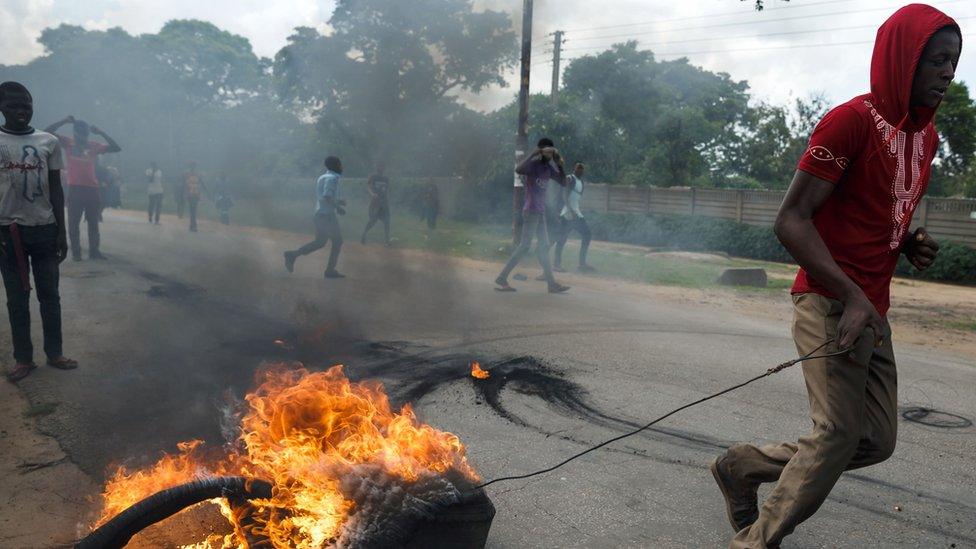
Access to the internet was tightly controlled during protests in Zimbabwe
Another method is called throttling.
This severely limits traffic to specific sites, giving the impression that the service is slow, thereby discouraging access.
It's more subtle because it's difficult to know whether sites are being actively restricted or whether poor broadband infrastructure is to blame.
As a final measure, telecoms companies can be required to shut down their services entirely, preventing all access.
Can service providers say no?
The ability of governments to censor the internet depends on their ability to exercise control over telecommunications companies.
Internet service providers are licensed by governments, which means they risk fines or the loss of their contracts.
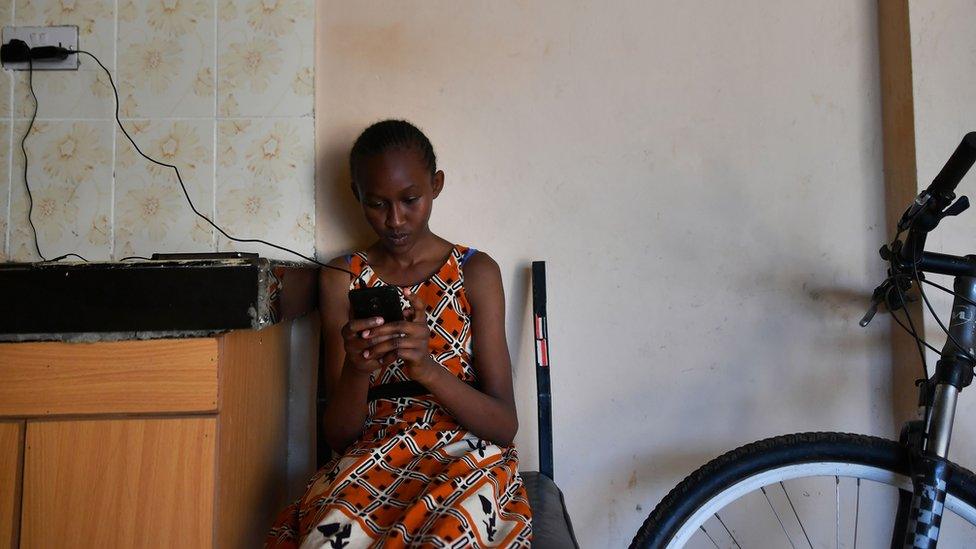
More and more people own smartphones in African countries
Operators may have the right to appeal to the courts, but in practice they rarely do.
However, there have been exceptions.
In 2019, the courts in Zimbabwe ruled in favour of reinstating internet access after the government ordered restrictions.
In response, the government implemented new regulations allowing them greater control over the internet.
Zimbabwe's Information Minister Monica Mutsvangwa says this will "ensure that internet and related technologies are used for the good of society, not to violate national security."
There are also examples where governments wishing to shut down the net have an easier task.
Dawit Bekele, Africa regional bureau director for the Internet Society, points to Ethiopia where he says "there is a de-facto single gateway owned by the government operator that can easily be used to block the internet."
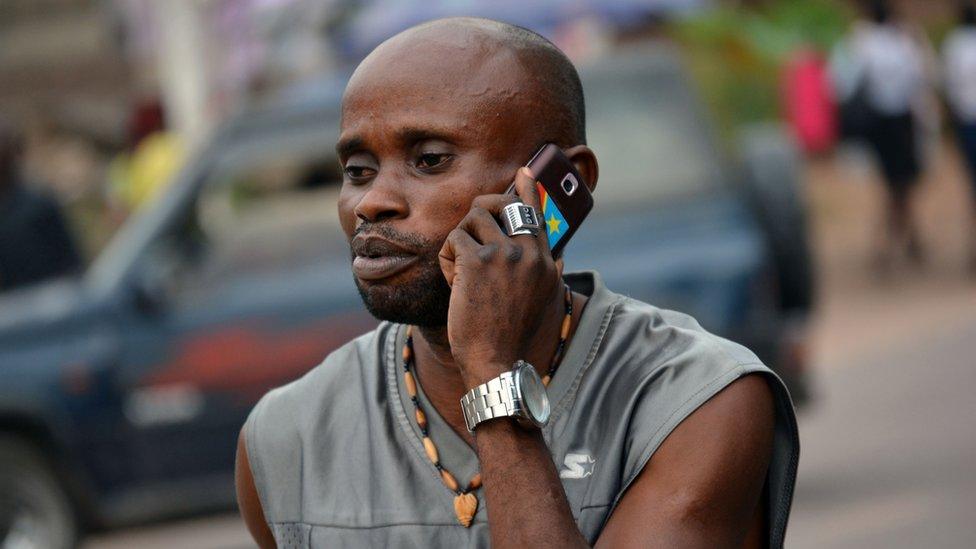
Internet shutdowns are becoming more common, like in the Democratic Republic of Congo
Unless access to the internet has been shut down completely, there are ways that individuals can manage to evade these barriers.
The most common method is the use of virtual private networks (VPNs). These encrypt data paths, making it difficult for service providers to block access to restricted sites.
Governments can also block VPNs, although they are less inclined to do so because this can severely inconvenience foreign diplomats and large companies which use them because they provide extra security.
Some African governments have pointed to the rise of "fake news" online as a reason for enforcing restrictions.
But some analysts and opposition figures consider this an excuse for suppressing groups critical of the government, which often organise on Facebook and WhatsApp.


